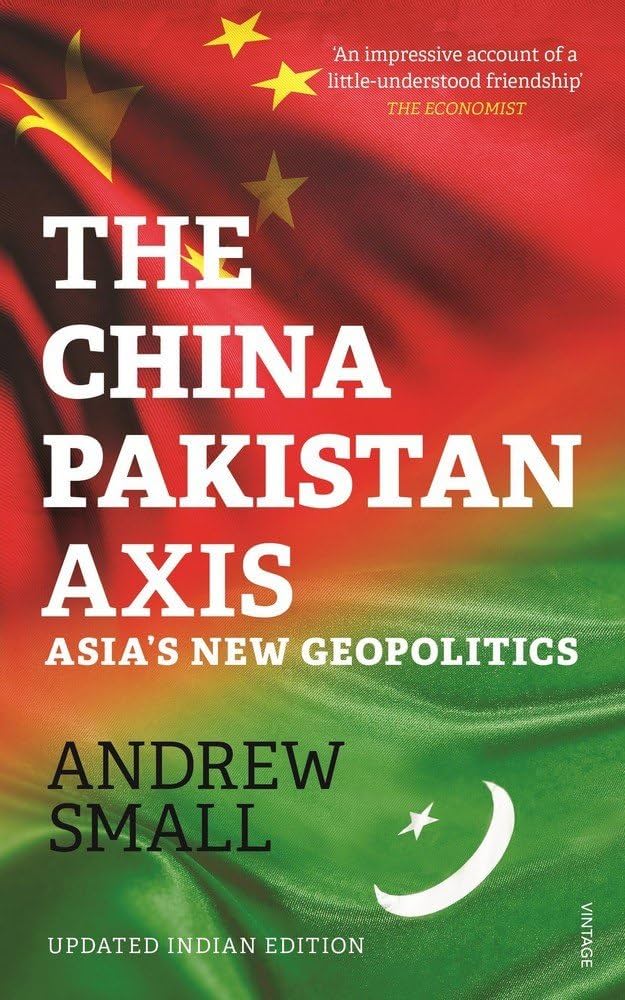Checkout our Customer Reviews!


































₨ 649 Original price was: ₨ 649.₨ 549Current price is: ₨ 549.
The China-Pakistan Axis
The China-Pakistan Axis: Asia’s New Geopolitics” by Andrew Small offers an in-depth exploration of the strategic alliance between China and Pakistan, a relationship that has significantly influenced regional dynamics in Asia.
- Author
- Category
- Product SKU
- : John Doe
- : History and Geography, Under 800
- : SKU-301
- Category
- Product SKU
- : History and Geography, Under 800
- : SKU-301
Description
Andrew Small’s “The China-Pakistan Axis: Asia’s New Geopolitics” examines China and Pakistan’s strategic cooperation, which has shaped Asian regional dynamics. This 2015 research illuminates the Sino-Pakistani partnership’s history, strategic imperatives, and geopolitical effects.
Small methodically recounts this alliance since the early 1950s, showing how similar strategic goals and worries about India forged a strong partnership. He examines China’s covert backing for Pakistan’s nuclear weapons program, military cooperation, and economic investments. The author stresses that despite ideological disagreements, both nations have maintained a strong, complex connection, frequently called a “all-weather friendship.”
A large part of the book examines China-Pakistan geopolitics. This alliance impacts regional security, notably in India, Afghanistan, and South Asia, according to Small. He reveals China’s geopolitical goals, include counterbalancing Indian influence and securing its western borders. The paper considers how this cooperation affects Western goals, including counterterrorism and regional stability.
Small also discusses the alliance’s economic aspects, like as the Karakoram Highway and CPEC. China’s Belt and Road Initiative seeks to improve Asia’s connectivity and economic integration through these efforts. The author evaluates these projects’ pros and downsides for Pakistan’s economy and sovereignty.
Small uses a lot of firsthand anecdotes, government documents, and stakeholder interviews to give readers a deep grasp of the China-Pakistan relationship. His balanced view acknowledges both the strategic benefits and possible drawbacks of this long-term cooperation.
Alpha Readers Club offers “The China-Pakistan Axis” for Pakistani readers interested in strategic relationships and regional positioning. This excellent essay explains the alliance’s history and stimulates contemplation on its future and regional and global geopolitics.

Welcome to Alpha Readers Club, your one-stop destination for discovering a world of stories, knowledge, and inspiration!
Useful Links
Contact Details
- +92 349 047 0465
- alphareadersclub@gmail.com
- Lahore Cantt.


Reviews
There are no reviews yet.